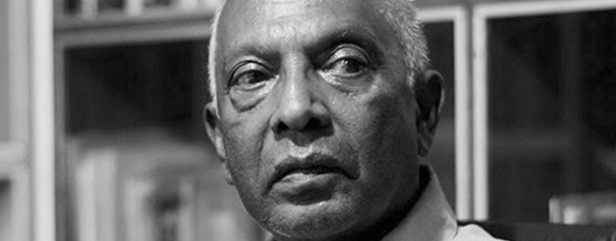(Attorney-at-Law Lal Wijenayake)
Chairman of the Public Representations Committee on Constitutional Reforms, Attorney-at-Law Lal Wijenayake spoke to Nation about the epoch-making challenge of navigating terra incognita – a/the people’s Constitution – and of ultimately deciphering the stentorian vox populi.
Q : How has the progress of the work been thus far?
We started sit-ins on January 18, 2016 from Colombo and continued on in Colombo till January 22, 2016. The enthusiasm from the people has been tremendous. There were oral submissions, electronic mails, fax messages, several through the website and written submissions which were handed over. Those who thus provided very useful material ranged from the civil society, Non-Governmental Organizations (NGOs), human rights activists, lawyers and groups of lawyers, academics, medical doctors, retired public servants, ordinary people like taxi drivers, retired Secretaries of Ministries, and leaders of trade unions and federations.
In the succeeding week, we met to conduct a study of the material and went through most of the material.
We had a long discussion with the Archbishop of Colombo. We met the Speaker.
Q : What about visiting the other districts?
On February 01, 2016, the 20 of us divided into groups of five in order to travel to all districts. We spend two days in one district. We were in Kandy, Gampaha, Matale, Kalutara and Vavuniya. In Kandy, on February 02, 2016, we finished only at 6 p.m. as we could not deal and cope up with the sheer workload. In Kandy, 191 came to give oral interviews while due to the time factor 80 to 90 gave written submissions. A former Mayor also came. We met the Mahanayake of the Malwatte Chapter. It was very fruitful. They had new ideas.
Q : What has the response from the people been?
We never thought that the ordinary people had thought about the constitution. The material placed before us thus far was well thought out.
Q : On what aspects are the masses expressing their views?
Submissions regarding 20 points, separately under different headings, have been sought from the members of the public on subjects such as the nature of the State; the form of the government (presidential/parliamentary); the basic structure of the Constitution; citizenship, religion, fundamental rights and duties, language rights, individual and group rights, and directive principles on State policy; the legislature (unicameral/ bicameral); the supremacy of the Constitution/the supremacy of parliament; the separation of powers; the independence of the judiciary and the structure of the Courts; the Constitutional Court; power sharing, devolution and the local government; sharing power at the centre; the Constitutional Council and the independent commissions; the public service; the electoral reforms; the judicial review of legislation; the powers of the president under a parliamentary system; the election of the president under a parliamentary system; public security; finance; and any other issues.
We are receiving various views including on devolution, the unitary State and the second chamber.
Q : What is the process adopted for this entire exercise?
Because we have only three months we are making maximum use of the modern technology. Later we plan to use electronic methods of conducting discussions.
The logistics are organized by the district secretaries. They provide us with interpreters, typists and they record the proceedings which are later burned onto compact discs in order to be transcribed. We have volunteers along with undergraduates helping us with the categorization of the material. The 20 of us in the committee will then prepare notes.
Q : Do you see a solution to the national question or ethnic problem emerging?
People do not directly call it the national question.
Q : What has the response of the political parties been like?
Political parties and politicians not represented in the parliament came and gave written submissions along with priests including so called extremist ones. In March 2016 we plan to be back in Colombo to meet special interest groups like the professionals and the clergy of all religions, faiths and denominations. Even when in outstation, we plan to meet influential people including vast organizations representing member groups. So far we have not been able to meet students who are studying for their General Certificate of Education Advanced Level examinations. We plan to meet them in each district after bringing them together in one location/place.
Q : What will take place next month?
We do not know yet whether there will be an extension of the committee’s term, but if there is no extension, then we will wrap up on March 31, 2016, after which we will take one month (April) to prepare the committee’s report for submission to the cabinet sub-committee and the Constitutional Assembly.
Q : What are the challenges you are presently facing?
Why is a new Constitution being brought? Why should we bring a new one? Why cannot we just amend the present one? These questions are being posed as criticisms. We welcome criticisms. This is how we can progress and move forward.
